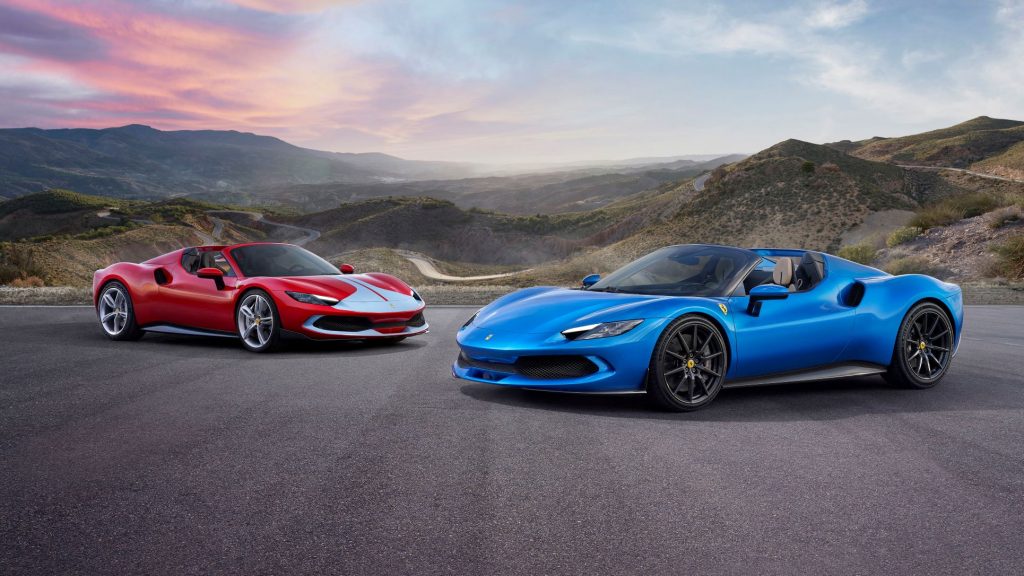
Ferrari unveiled on Tuesday the new 296 GTS convertible, its fourth plug-in hybrid model, as the luxury sportscar maker pushes ahead with its electrification strategy.
It follows Ferrari’s previous three hybrid models that went into full series production — the SF 90 Stradale in 2019, its convertible version, called SF90 Spider, in 2020 and last year’s 296 GTB.
The 296 GTS is a convertible version, fitted with a retractable hard top, of the existing 296 GTB, a luxury car which sells for around 300,000 euros ($324,000).
The two cars share most relevant features, including a 6-cylinder (V6) mid-rear turbo engine coupled with a 122 KW electric motor for a total of 830 horse power, and 25 km of silent electric-only power.
Its top speed exceeds 330 km/h, Ferrari said.
Deliveries of the new model will start from Europe in early 2023 and the price will be confirmed in due course.
So far Ferrari road cars have been normally powered by V8 or more powerful V12 engines but the company is increasingly reducing the share of highly polluting V12-fitted cars in its production.
Another new model is planned for release in the coming months, the much awaited Purosangue (Thoroughbred). That will be Ferrari’s first ever sport utility vehicle (SUV) and bring the company into a lucrative segment where direct rivals such as Volkswagen’s Lamborghini are already present.
“I’m confident (the Purosangue) will exceed our customers’ expectations,” Chief Executive Benedetto Vigna said last week.
A tech industry veteran, Vigna took charge of Ferrari last September, with a task to take a brand synonymous with roaring combustion engines, into the new era of silent and cleaner electric mobility.
As part of this Ferrari has already promised its first full-electric model in 2025, while Vigna has already said the company would seek technology partnerships.
More details of Ferrari’s electrification strategy are expected on June 16, when Vigna will present his first comprehensive business plan.
($1 = 0.9272 euros)
(Reporting by Giulio Piovaccari; Editing by Keith Weir)